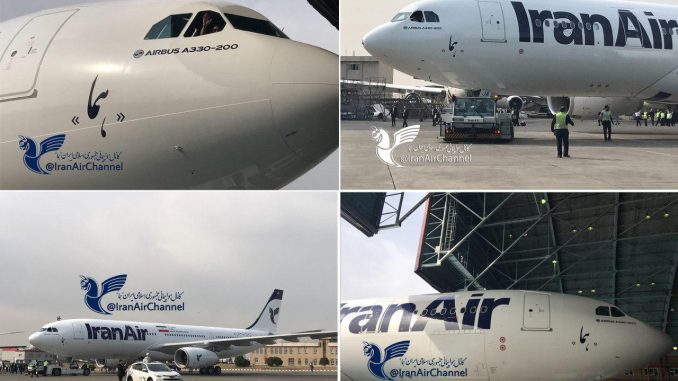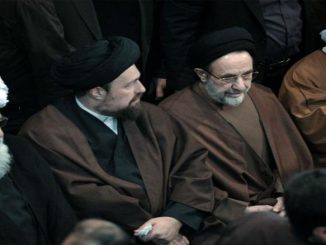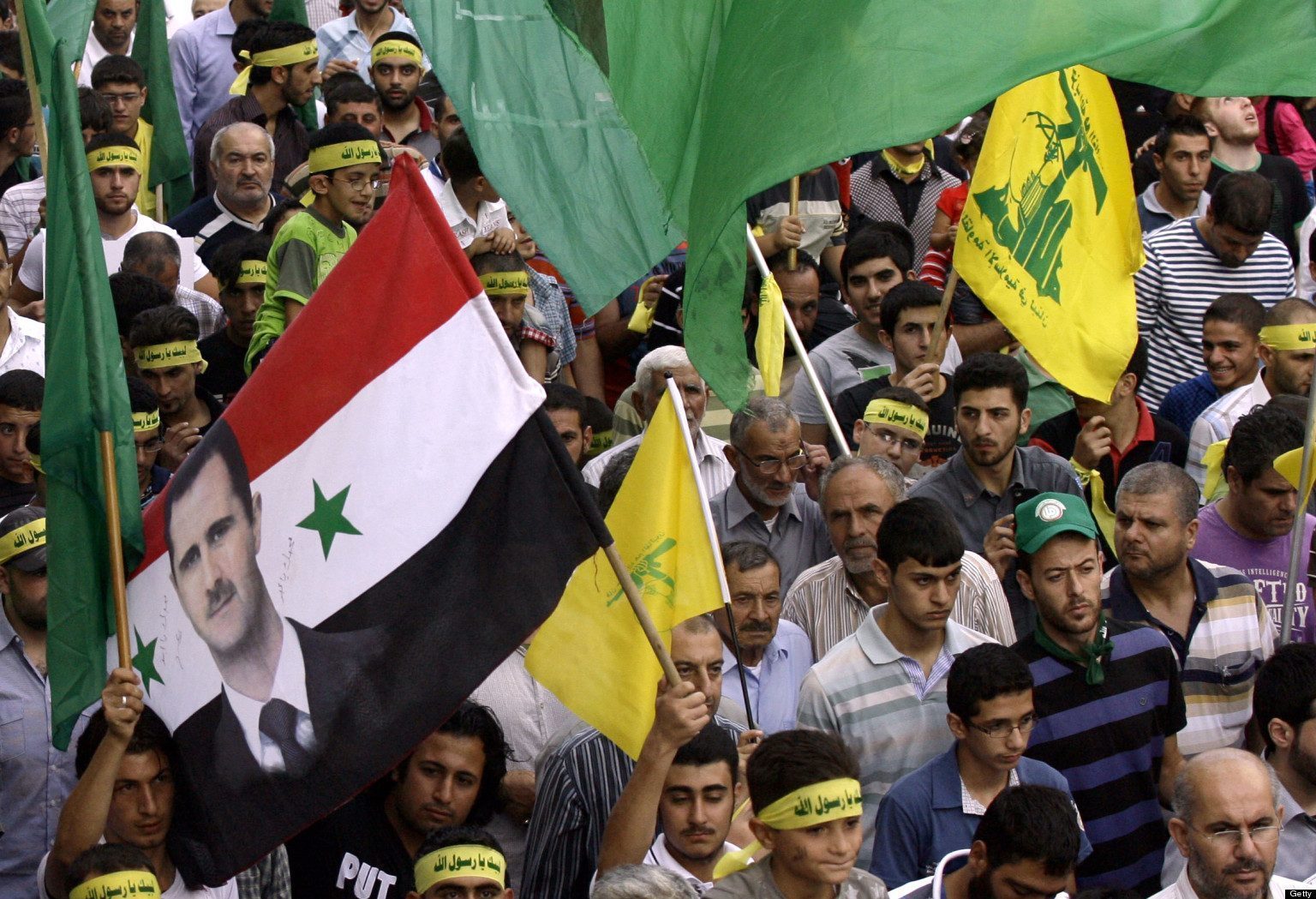
According to deal signed after lifting the sanctions on Iran last year, An Airbus (AIR.PA) A330 airliner arrived in Tehran on Saturday, the third of 200 Western-built passenger aircraft ordered by IranAir.
Iran made a historic nuclear deal with P5+1 powers in 2015, in which Tehran agreed to amend its nuclear output in order to lift all nuclear-related economic sanctions, freeing up tens of billions of dollars in oil revenue and frozen assets.
After lifting the sanctions, Iranian president Hassan Rouhani visited Europe and made deals that worth billions of dollars. European companies started looking for investment opportunities in the growing Iranian market.
The Iranian government also sought deals with western companies to develop and maintain its natural resources such as Oil and Gas.
In addition, Iran has made new trade relations with many European countries to widen the Iranian market and help in modernizing the country’s infrastructure and its public transport.
New jets delivery
The long-haul A330-200 landed at Tehran’s Mehrabad airport, the official news agency IRNA reported, as flag-carrier IranAir tries to renew its decaying fleet.
The aircraft joins another A330 and a smaller A321 delivered to Iran earlier this year by Airbus.
Farhad Parvaresh, the managing director of Iran’s national flag carrier Iran Air, arrived in French City of Toulouse on March 24 to take delivery of the third plane, IRNA news agency reported.
Airbus was not immediately available for comment.
The country has not directly purchased a Western-built plane in nearly 40 years, the one exception being the sale of an Airbus to replace one shot down by the U.S. Navy in 1988.
Uncertainty remains over the timing of the rest of the orders as banks shy away from deals with Iran, fearing a “snapback” of international sanctions or U.S. fines if they are deemed to be breaking U.S. sanctions that remain in force.
Previous airplane deal
European plane manufacturer Airbus, along with U.S. aerospace and defense company Boeing (BA), were both given the greenlight to sell aircraft to Iran earlier this year.
During a January 2016 visit to Paris by Iranian President Hassan Rouhani, Tehran signed a major contract with Airbus worth about $27 billion to buy 118 planes. On January 12, the first commercial airliner purchased from Airbus.
This was the first brand-new Western passenger jet delivered to Iran in decades. The country’s current fleet is mostly comprised of planes purchased before the 1979 Islamic Revolution and thus considered very old.
Iran sealed another deal in June worth around $25 billion with the US aerospace heavyweight, Boeing, for the purchase of 100 passenger planes.
In December, the deal with Boeing was finalized, allowing Iran to buy 80 planes within 10 years. The first deliveries are expected in 2018.
While Western plane makers are very keen on trade with Iran, Washington still demands that even non-American manufacturers wishing to sell to Iran obtain an export license if their products include materials made in the United States. Airbus, based in Europe, buys more than 40 percent of all its aircraft parts from the US.
Dispute in Iran
These achievements resemble a big victory for Hassan Rouhani, Iran’s centrist president, who has been questioned by critics at home about the limited economic dividends so far from last year’s agreement with major powers to curb Tehran’s nuclear program.
The delivery of the brand-new jet to Tehran was welcomed by Reformist and moderate news agencies and news sites, which described it as the fruit of the nuclear deal. Meanwhile, conservatives and hard-liners sought to downplay the importance of the development, which is among the first tangible results of the nuclear deal for ordinary Iranians.
The buying of passenger planes has consistently been a controversial issue over the past two years, as conservatives have condemned Rouhani and described his motives for buying aircraft as “electoral.”
On Jan. 30, 2016, Gen. Mohammad Reza Naghdi, then-commander of Iran’s paramilitary Basij force, slammed the president for his efforts to purchase planes from Western aircraft manufacturers, saying, “The occurrences of the Rome and France trips [of Rouhani] were a stab to the body of the Resistance Economy. These measures are against the Resistance Economy, and in case of continuance of such measures, we should close down the technical universities of the country.”
In response to Naghdi’s criticism, First Vice President Es’hagh Jahangiri said Feb. 2, 2016, “Some individuals are putting a stick in the country’s wheel. … We have two types of officials in the country. The duty of some officials is to resolve people’s issues, while some others’ responsibility is to nag and put a stick in the country’s wheel. The second type always gets upset by people’s happiness.”
Following the intensification of the hard-liners’ attempt to cancel the aircraft deals, Rouhani has on a few occasions stepped forward to respond to their criticisms. On Oct. 20, 2016, Rouhani said, “When the government wants to buy a plane, some individuals state that ‘you should buy buses instead of planes.’ … If the government doesn’t purchase planes, they say, ‘What is the result of the JCPOA?’ And if we buy a plane, they say, ‘This plane is luxurious and brand-new.’”
In addition, the hardliners and their backed Revolutionary guards were very critic to the Oil deals, and Rouhani sought to oppose their plans and push the guards’ affiliated companies away from big projects including South Pars.
During years of sanctions that kept away many foreign companies, the Islamic Revolutionary Guard Corps stepped into the void, building a network of companies that came to dominate Iranian industries from energy to telecommunications.
The behind-the-scenes struggle mirrors a broader debate over Iran’s future. Moderates backing President Rouhani seek a degree of social and political liberalization, as well as better relations with Europe and the U.S.
The Revolutionary Guards should “be limited to those areas that the private sector is incapable of or uninterested in,” a spokesman for the Rouhani government has previously said.
“The government believes that the private sector should gain the opportunity to present its capability. The government itself shouldn’t compete with it. Other sectors like [the IRGC] should not compete with it.”
Hard-liners believe the Rouhani administration’s push for the finalization of the aircraft deals is political and intended to sway the public ahead of the May 2017 presidential elections. Describing the buying of Airbus jets as part of Rouhani’s bid for re-election, hard-line parliament member Mohammad Ali Pourmokhtar thundered on Dec. 27, 2016, “Buying 100 planes and creating limited job opportunities in the country while creating job opportunities for the European countries and America is no cause for pride.” On Jan. 1 this year, Rouhani responded to these criticisms, saying, “There are nine months left [in office] for this administration. … It is not appropriate for them to say it is ‘electoral’ if we seek to open a railway or buy planes.”



